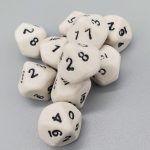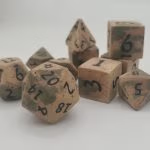Mastering the Elf Cleric: A Beginner’s Guide to DND
Welcome to the magical world of Dungeons & Dragons! If you’re here, you’re probably excited to dive into your next campaign as an Elf Cleric. Whether you’re a seasoned player or new to the game, this guide will provide you with essential tips and tricks to help you become an effective and beloved member of your party.
Why Choose an Elf Cleric?
Elf Clerics offer a unique combination of agility, wisdom, and magical prowess. Their natural affinity for magic, coupled with their divine connection, makes them versatile and powerful characters. As an Elf Cleric, you have the potential to be a healer, a protector, and a formidable spellcaster all in one.
Racial Traits and Abilities
Elves come with a set of racial traits that enhance their cleric abilities:
- Keen Senses: Proficiency in Perception.
- Fey Ancestry: Advantage on saving throws against being charmed, and immunity to magic that puts you to sleep.
- Trance: Elves don’t need to sleep. Instead, they meditate deeply for 4 hours a day.
Creating Your Elf Cleric
When creating your Elf Cleric, consider these key elements:
Ability Scores
Focus on Wisdom as your primary ability score, as it will enhance your spellcasting abilities. Dexterity should be your second priority, as it will improve your armor class and initiative. A typical array might look like this:
- Wisdom: 16
- Dexterity: 14
- Constitution: 13
- Intelligence: 12
- Strength: 10
- Charisma: 8
Choosing Your Domain
As a Cleric, you’ll choose a divine domain that grants you special abilities and additional spells. Popular domains for Elf Clerics include:
- Life Domain: Focuses on healing and protection.
- Nature Domain: Offers abilities that allow you to manipulate the natural world.
- Light Domain: Provides powerful offensive spells and blinding radiance.
Spells and Equipment
Spells
As a Cleric, you have access to a wide array of spells. Here are some essential spells for an Elf Cleric:
- Cure Wounds: A go-to healing spell.
- Shield of Faith: Grants a +2 bonus to AC.
- Guiding Bolt: Deals radiant damage and gives advantage on the next attack roll against the target.
- Spiritual Weapon: Summons a floating weapon to attack your enemies.
Equipment
Equip your Elf Cleric with the following items:
- Armor: Start with chain mail for good protection.
- Weapons: A mace or warhammer as your primary weapon, and a light crossbow for ranged attacks.
- Holy Symbol: A must-have for casting spells.
Tips and Tricks for Beginners
Here are some tips to help you excel as an Elf Cleric:
- Communicate with Your Party: As a healer and support character, it’s essential to stay in constant communication with your teammates.
- Prioritize Healing: Keep an eye on your party’s health and be ready to step in with healing spells when needed.
- Utilize Your Spells Wisely: Don’t waste your spell slots on unnecessary spells. Plan your spell usage to maximize effectiveness.
- Stay Mobile: Use your high Dexterity to stay agile in combat, avoiding attacks and positioning yourself optimally.
Conclusion
Playing an Elf Cleric in Dungeons & Dragons is a rewarding experience that offers endless possibilities for creativity and strategy. By focusing on your strengths and working closely with your party, you can become an invaluable asset in any campaign. So go forth, embrace your divine heritage, and let your light shine in the world of DND!
Happy adventuring!
Author: Matthew Hernandez
-
Dark Heart Ceramic Dice Set
Select options This product has multiple variants. The options may be chosen on the product page -
Bulk 10d10 Assorted Ceramic Dice Set
Select options This product has multiple variants. The options may be chosen on the product page -
Moss Druid Ceramic Dice Set
Select options This product has multiple variants. The options may be chosen on the product page



